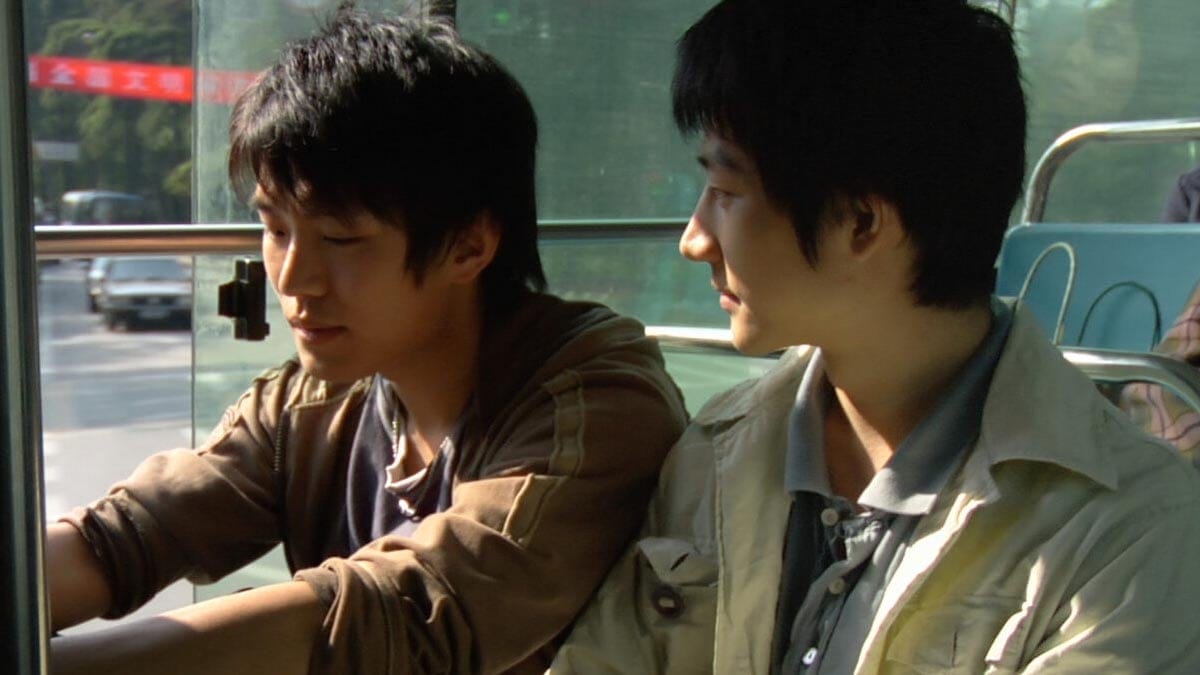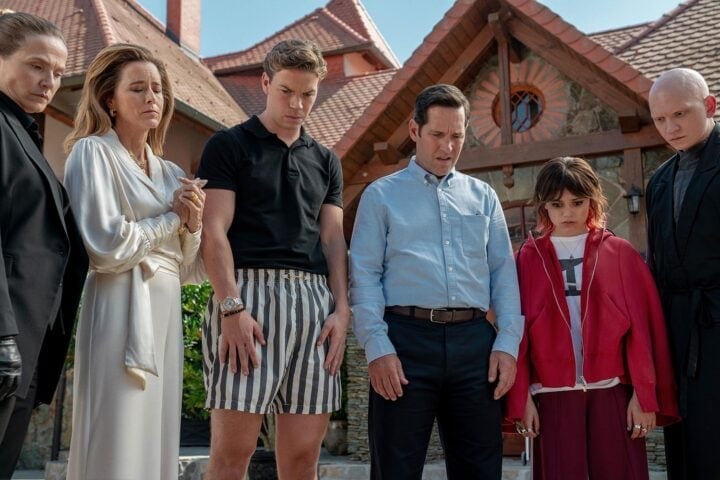In films like Suzhou River and Saturday Fiction, Lou Ye nests his political criticisms within the protective comfort of self-reflexive narrative structures. The films’ meta-cinematic qualities—say, an old theater as both an espionage headquarters and a place of political spectacle—offer a manageable distance from reality while also creating a mesh netting for the real world to seep in. Lou’s scathing critiques—of political corruption and personal complicity—emerge through the gradual corrosion of the artificiality of his narrative frameworks.
An Unfinished Film provides no such buffer from reality, nor does it employ stylized fiction as a conduit to real life, as Lou just aims dead on for it. The Covid-19 pandemic is still recent history, and, to some degree, Lou employing his own history in the form of outtakes from films like Spring Fever and Mystery for Xiaorui’s (Mao Xiaorui) movie within the movie is relatively novel in terms of his aspiration to create a dialogue between real and fictional timelines.
Here, Lou situates the audience at the start of January 2020, as the cast and crew of Xiaorui’s incomplete movie from a decade ago reconvene to finish the story, only for it to be interrupted by a national—and ultimately global—emergency. And Lou depicts the uncertainty and unsureness at the beginning of the pandemic not as it was by news programs the world over, but as most of us who lived through it probably remember it: as kind of boring.
As Jiang Cheng, the lead actor in the film within the film, Qin Hao rolls around half-heartedly doing yoga in his confined hotel room, films videos of the empty street outside his window, and FaceTimes with his wife and child. Perhaps An Unfinished Film’s unvarnished vantage point of a film production (real or fake, or some combination of the two) interrupted by global pandemic, and made worse by poor management by powerful government, is a valuable artifact, and one glimpse of the production team celebrating Chinese New Year is a sweet detour.
That’s especially the case given that we look at all this from the point of view of people who were in Wuhan at the time. But Lou’s commitment to keying us to the inertness of being trapped in the unknown—of human connection severed and supplanted by digital interfaces—tries the patience, as the film doesn’t feel like it has much to document or observe beyond the obvious.
More than a vigorous interrogation of the moment and how it changed society, the film’s most theoretically interesting observation is its use of Covid-19 as an inflection point for how citizens bear witness to both the banal and the exceptional, catastrophic or salvatory. An Unfinished Film freely mixes footage shot for the film and real iPhone footage that was banned or blocked by the Chinese government, of everything from a body being carried away by a white van to a woman running through the streets of Wuhan, taking in the emptiness around her.
But if these feel like left-turn, manipulative punctuation marks in an otherwise staid collection of mundanity, that’s because everything around them lacks a real emotional tether. Ultimately, An Unfinished Film’s overarching point of view is limited to the crew quarantined in their hotel rooms, preventing the film from being able to delve deeper into any of its ostensible underlying ideas about social injustice, intimacy interrupted, or political mishandling of global cataclysms. If the frames of Lou’s previous work suggested that reality was something that could be unlocked and unfurled, An Unfinished Film’s presentation of reality as it basically was unfortunately gives the filmmaker, and the audience, little to discover.
Since 2001, we've brought you uncompromising, candid takes on the world of film, music, television, video games, theater, and more. Independently owned and operated publications like Slant have been hit hard in recent years, but we’re committed to keeping our content free and accessible—meaning no paywalls or fees.
If you like what we do, please consider subscribing to our Patreon or making a donation.






